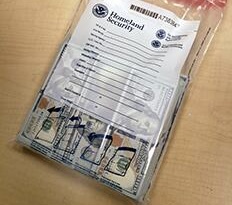In a recent development, officers from the United States Customs and Border Protection (CBP) seized $68,000 from a family bound for Nigeria after they provided false information about the value of cash in their possession. The confiscation occurred during routine inspections at Washington Dulles International Airport as the family prepared to board a flight to Cairo, Egypt.
While there is no set limit on the amount of currency travelers can bring into or out of the US, federal law mandates the reporting of all sums exceeding $10,000 to CBP officers. Additionally, travelers are required to complete a US Treasury Department Report of International Transportation of Currency or Monetary Instruments (FINCEN 105).
The unidentified father of the family claimed they had $10,000 in their possession and signed the FINCEN 105 form accordingly. However, a thorough examination of their carry-ons revealed a total currency amounting to $68,216.
As a humanitarian gesture, the officers returned $216 to the family and confiscated the remaining $68,000. The family was allowed to proceed with their journey after the incident.
The CBP, in a statement, did not specify the nationality of the family members, leaving their identity undisclosed. Marc Calixte, the Washington D.C. area port director, emphasized that the seizure could have been avoided if the family had truthfully declared the actual amount of currency in their possession.
Calixte highlighted that unreported bulk currency may be linked to illegal financial activities, emphasizing the serious consequences of currency seizure. Travelers who fail to accurately report their currency may face potential criminal prosecution, underscoring the importance of compliance with reporting regulations.










